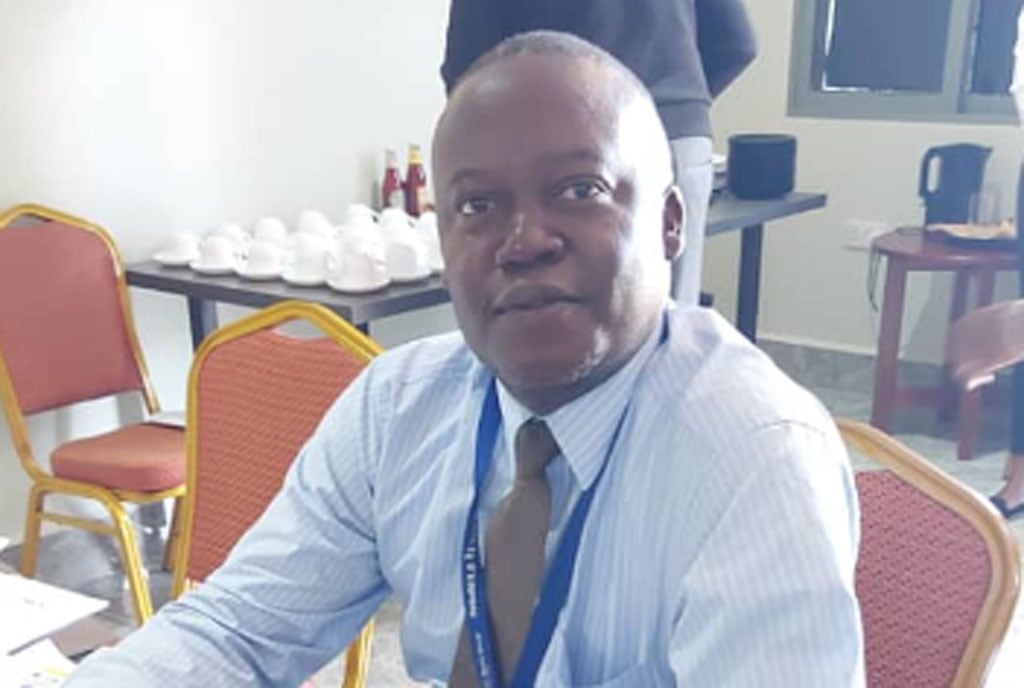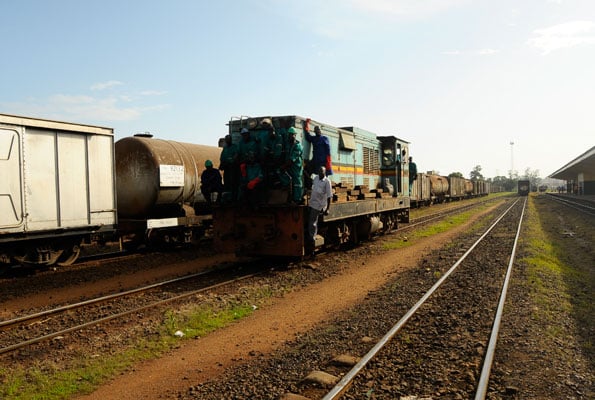Prime
How Jinja fish farmers spent Shs1.7b SGR compensation

Mr Julius Kayiira, the Kitovu Fish Farmers Association publicist (left), shows the Standard Gauge Railway (SGR) project coordinator, Mr Perez Wamburu, what is left of their former earth ponds which they surrendered in 2016 to pave way for the eastern route of the SGR. PHOTO/PHILIP WAFULA
The activities of 146 members of Kitovu Fish Farmers Association were in 2016 disrupted by the multi-billion Standard Gauge Railway (SGR) project, which claimed their land in Kitovu Village, Jinja North Division.
The land, measuring about 400 metres in width and 2.2kms in length, was along the 219-kilometre eastern railway corridor and runs from Malaba to Kampala, was also the proposed site for Jinja City’s railway station.
-
Subsequently, at least 1,500 Project Affected Persons [PAPs] from four villages, which include Makenke, Kitovu, Kimaka and Sakabusolo were affected.
The SGR project coordinator in the Ministry of Works and Transport, Mr Perez Wamburu, said it was unfortunate that the entire fish farming corridor was taken over by SGR, but added that a few months ago, about 130 farmers were compensated to the tune of slightly more than Shs1.7b.
“The beneficiaries have bought land, built houses and I was assured by their [village] chairmen that they have not misused the money that was given to them by SGR,” he said in an interview on Wednesday.
Mr Julius Kayiira, the association’s publicist, said in November and December last year, 139 of them, mainly with earth or ground ponds, were each compensated to the tune of between Shs2m and Shs250m.
He added that only seven members have not yet been compensated.
Mr Kayiira said the majority used their compensation to buy land, set up new businesses, and expand on existing ones, while 20 beneficiaries relocated to Masese Landing Site, where they have set up 60 fish cage farms.
Mr Michael Bwire, the chairperson of the association, said he received Shs45m and bought land on which he planted trees, expanded his business and invested in cage fish farming at Masese Landing Site.
“I interact with majority of them and from our conversations, most of them bought plots of land in Budondo and Bugembe,” he added.
To understand how vibrant the association, which started in 2000, was, Mr Bwire said they were recognised at national level by the National Agriculture Advisory Services (Naads) and given free fingerlings.
He added that on average, the association harvested 18 tonnes of fish monthly, which was sold locally and in Rwanda, the Democratic Republic of Congo and Kenya, among other destinations.
Mr Kayiira said he and his colleagues don’t regret resorting to cage fish farming, saying a compartment of a [fish] cage can have up to 5,000 fish, which after eight months, gives the farmer about 2,500 tonnes of fish, with each kilogramme going for Shs8,000.
Mr Martin Bwire, the Kitovu Village chairperson, who is also a beneficiary of SGR compensation, said most of the residents relocated after receiving their compensation.
He, however, notes that while fish farmers were compensated, the owners of the land on which they were carrying out the activity haven’t been compensated.
Mr Jonathan Kisaamo, the director of St Monica’s Secondary School in Makenke Village, Jinja North Division, is one such person.
He said the enrolment at his school has reduced significantly from 600 to barely 100 students.
“I lost land, dormitories, and an administration block, leaving me with only classes, and when my competitors heard that the school was affected by the SGR project, they seized the moment to blackmail me yet the school is operating with all facilities,” Mr Kisaamo said.
On the alleged compensation backlog, Canon Wamburu said: “Both fish and land were compensated, but outside the corridor, no compensation has been made. We handed over our report to the chief government valuer for approval and once approved, they shall be compensated.”
BACKGROUND
SGR project
In March 2019, during a state visit to Kenya, President Museveni and his host, President Uhuru Kenyatta, jointly committed to extending the Standard Gauge Railway SGR to Kampala via Malaba.
The Malaba-Kampala section, with associated train stations and railway yards, measuring 273 kilometres (170 miles), is budgeted to cost $2.3b. Once funding is secured, the construction of the Eastern Line is expected to last 42 months. The entire 1,724 kilometres (1,071 miles) SGR in Uganda will cost an estimated $12.8b.





